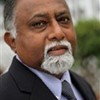- GMHC
-
Getting Started
-
Wondering where to start?
-
 We're your guide. What can this community do for you? Learn more
We're your guide. What can this community do for you? Learn more
-
-
Mobilization
-
Heed the call!
-
 Community Challenges Activate your journey to the field! Read Article
Community Challenges Activate your journey to the field! Read Article -
 Search Jobs Community Job Board Read Article
Search Jobs Community Job Board Read Article
-
-
Resources
-
Learn & Connect
-
 Upcoming Events Learn from the experts in healthcare missions & connect with others. Register Now
Upcoming Events Learn from the experts in healthcare missions & connect with others. Register Now
-
-
Community
-
Connect With the Community
-
 Member Lounge We're all in this together! Join the conversation.
Member Lounge We're all in this together! Join the conversation.
-
- Store
- Log In
Welcome to the MedicalMissions.com Podcast
This is a series of sessions from leading experts in healthcare missions.
Beyond Medicine: What Else You Need to Know to be a Healthcare Missionary
- Baccalaureate Prepared Nurses
- Dental
- Emergency Medicine
- and 17 more...
Knowing medicine or dentistry is not enough to be a successful missionary. There are many things beyond medicine you need to master to be effective. You need to learn how to recruit, train and supervise people. You will likely be involved in fund raising, program design and development, evangelism, leadership, government relations, project proposals, public speaking and much more.
This session will give you an overview of many of these areas and get you started down the path to be a life long learner. Dr. Stevens will share clear principles and practical experience seasoned with examples from his missionary experience. He will point you to good resources to learn what you need to know beyond medicine.
This session will give you an overview of many of these areas and get you started down the path to be a life long learner. Dr. Stevens will share clear principles and practical experience seasoned with examples from his missionary experience. He will point you to good resources to learn what you need to know beyond medicine.
Healthcare & Church-Planting Movements: case study of Muslims in Sierra Leone
- Non-Medical
- Other
- Church Planting
- and 2 more...
How did 145,000 Muslims find Jesus in a single decade? Shadanke faced a decision: He could woo foreign health-care professionals to Sierra Leone to meet dire medical needs among his people. Or he could partner with a few foreign health-care professionals to launch out-of-control movements of reproducing Jesus-Communities (churches) that would explode the Kingdom among hundreds of thousands of his people while training/equipping them to meet those physical needs in Jesus’ name. He chose the latter. And a decade later there are literally hundreds of thousands of baptized believers, half for them former Muslims, who continually ravage Satan’s kingdom, proclaiming the gospel of the kingdom and it’s power, healing all kinds of diseases.
Forming & Preparing a Team for Long-term Healthcare Missions
- Non-Medical
- Other
- Church Planting
- and 2 more...
What’s your ultimate long-term goal? Is your dream to vaccinate multiple thousands of Berber children against preventable child-hood diseases or … to launch movements of missional-communities (churches) among the Berber who will reach all the Berber for Christ … and vaccinate all their children too? Is your goal to treat five thousand TB patients among the Bedo of Jordan or … to establish reproducing Jesus-Communities in the desert that actually bring the Kingdom’s blessing to all Bedouins … and who themselves become the hands of Jesus serving TB patients among them? Is your ambition to establish and/or staff emergency clinics for the never-ending flow of refugees, or … is your life ambition to launch out-of-control movements of simple churches that sweep through a people group … and serve their sick as part of being the church.
This breakout session will give you hope that the bigger vision is possible and help you form and prepare long-term teams that can embrace such a challenge.
This breakout session will give you hope that the bigger vision is possible and help you form and prepare long-term teams that can embrace such a challenge.
Who are the poor?-Redefining poverty for Community development initiatives
Abstract:
Poverty is an issue that should interest all Christians especially physicians working in mission settings in charity hospitals and also physicians working in public health doing development work. Poverty is often understood in monetary terms. The Millennium Development Goal team has defined it as less than 2$ a day. This presentation seeks to understand poverty in “wholistic” terms. Poverty cannot be eradicated merely by economic empowerment unless other factors are also looked at such as:
• Social exclusion or stigmatization,
• Lack of access to decision making,
• Fatalism or paralysis of the “status quo”,
• Gender discrimination and
• Dependencies (caused by excessive funding) are other important factors that aggravate poverty.
Scriptural support for a broader understanding of the poor will be presented from both the “Nazareth Manifesto” in Luke chapter 4 and also from all the engagements Jesus had with different kinds of “poor” individuals.
Finally evidence will be presented about how broad based approaches to poverty have impacted development positively.
Poverty is an issue that should interest all Christians especially physicians working in mission settings in charity hospitals and also physicians working in public health doing development work. Poverty is often understood in monetary terms. The Millennium Development Goal team has defined it as less than 2$ a day. This presentation seeks to understand poverty in “wholistic” terms. Poverty cannot be eradicated merely by economic empowerment unless other factors are also looked at such as:
• Social exclusion or stigmatization,
• Lack of access to decision making,
• Fatalism or paralysis of the “status quo”,
• Gender discrimination and
• Dependencies (caused by excessive funding) are other important factors that aggravate poverty.
Scriptural support for a broader understanding of the poor will be presented from both the “Nazareth Manifesto” in Luke chapter 4 and also from all the engagements Jesus had with different kinds of “poor” individuals.
Finally evidence will be presented about how broad based approaches to poverty have impacted development positively.
Measuring What Matters in Community Transformation
- Environmental Health
- Epidemology
- Health Education
- and 16 more...
In management, there is a saying, "you get what you inspect, not what you expect". However, how do we know exactly what to inspect in the transformational development process? for example, if we looked only at the instruments showing the vial signs of a patient in a coma but kept alive on life support systems, the instruments would show that vital signs are within the ideal range. However , the doctor treating this patient would be most concerned about when the patient's CNS would take over responsibility for all the vital organs to function normally. We understand this well in Medical science, but somehow forget all about it when it comes to community development. Empowerment takes a back seat, and other indicators take on prominence, despite the fact that we know that things like vaccination levels, disease incidence etcetera can be made to "look impressive" by directing inputs in a particular way. We are often content to become service providers for health care and management, and take on the responsibility for 'ensuring that the community is healthy'. We are even happy with the community being a passive recipient of our services, because the outcome is good - immunization levels are up, people are healthy. But what happens when the program is over? Do things just revert back to where they were before we started? does anyone go back to check? A good friend of mine , Dr. Stanley Foster (who spent over 50 years in Public Health in CDC and Emory University) is a strong advocate for evaluation of intensive massive health care projects two years after the projects are over!!!
One can say without a doubt that if the community was not engaged from the beginning in the planning and empowered as a part of the project design to take responsibility for their health ; the outcome would be pretty embarrassing. This session focusses on identifying what matters in the development process (Empowerment, progress towards the MDGs, etcetera) & finding ways to measure them.
One can say without a doubt that if the community was not engaged from the beginning in the planning and empowered as a part of the project design to take responsibility for their health ; the outcome would be pretty embarrassing. This session focusses on identifying what matters in the development process (Empowerment, progress towards the MDGs, etcetera) & finding ways to measure them.





